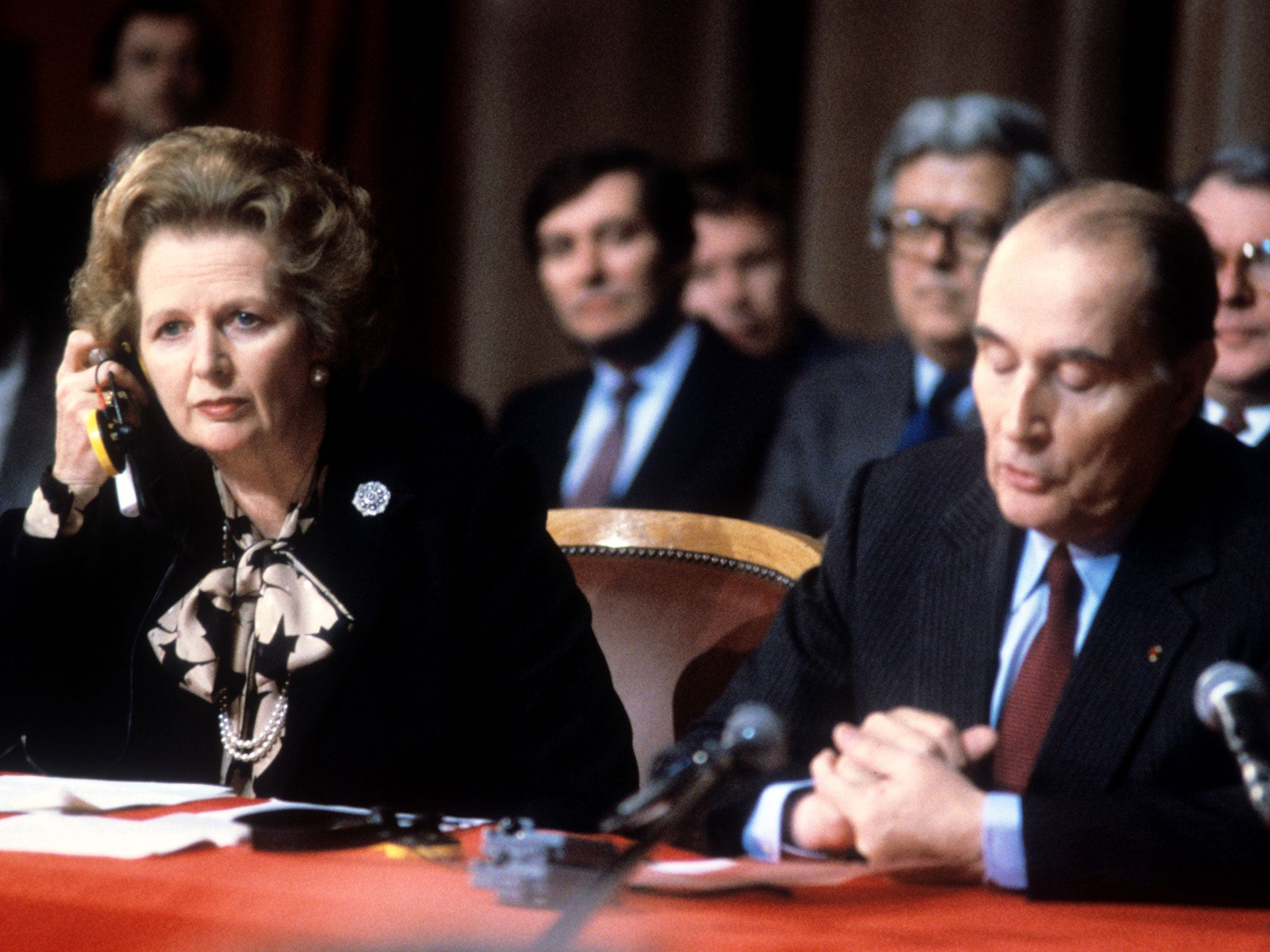Margaret Thatcher warned François Mitterrand off selling Exocets to Argentina

Even in the opinion of its author it was a scheme that owed more to James Bond than the reality of the Falklands War. The Attorney General hatched a plan to thwart Argentine efforts to get hold of fresh supplies of Exocet missiles by using a secret agent to hijack a plane load of the weapons.
The scheme was laid out in a handwritten letter to Prime Minister Margaret Thatcher from Sir Michael Havers, the father of the actor Nigel Havers and the Government’s most senior law advisor at the height of the 1982 war to re-take the islands in the South Atlantic.
The British were haunted by concerns that Argentina would be able to replenish its stocks of the French-built Exocet which was used with such devastating effect against the British naval task force, destroying HMS Sheffield and the Atlantic Conveyor.
Behind the scenes, MI6 was working hard to sabotage missiles using information provided by the French but Sir Michael, who later became Lord Havers, was convinced Britain needed to consider other schemes, including “even the most way-out which may be thought to be more appropriate to a James Bond movie”.
Under his scheme, the Attorney General, whose job was to keep the the British government on the straight and narrow, suggested arranging for an agent to be placed in a position to take control of any deal between an arms dealer and the Argentine government by ensuring any “cowboy” air freight company used to transport the weapons was penetrated.
Using an acquaintance with connections in the air freight industry, Lord Havers believed the “loadmaster” of the flight could be arranged on the British government’s behalf.
In the memo disclosed for the first time at the National Archives in Kew, west London, Lord Havers wrote: “The loadmaster has total control of the flight and, therefore, could redirect the aircraft in transit to (for example) Bermuda. This will cost money (this is an expensive and dirty business) but would, in my view, be cheap at the price.”
Seeking to underline the plausible deniability of the arrangement, he added: “All of this will be totally independent of any UK connection.”
The response of Mrs Thatcher to the scheme was typically short and to the point. Above a note introducing the plan from one of her officials, she wrote: “Can we have a word?”
Subscribe to Independent Premium to bookmark this article
Want to bookmark your favourite articles and stories to read or reference later? Start your Independent Premium subscription today.

Join our commenting forum
Join thought-provoking conversations, follow other Independent readers and see their replies